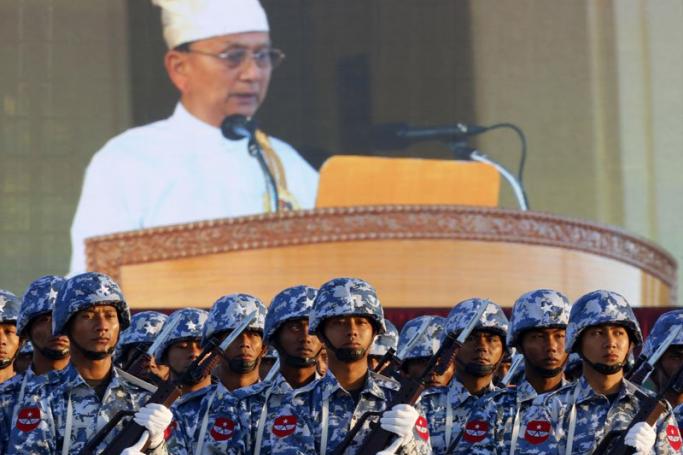The Tatmadaw will maintain its role in politics to support the transition to democracy but will eventually submit to civilian rule, President U Thein Sein told the BBC in an interview broadcast on March 20, Reuters news agency reported.
The military had initiated the reform process and still needed to play a political role to support the transition, President U Thein Sein said, referring to the seven-point roadmap for a transition to democracy unveiled by the ruling junta in August 2003.
“In fact, the military is the one who is assisting the flourishing of democracy in our country,” he told the BBC.
“As the political parties mature in their political norms and practice, the role of the military gradually changes,” he said.
The President did not indicate when the military would end its political role. He said such a move would be according to the “will of the people”, Reuters quoted him as saying in the interview.
The 2008 Constitution gives the military a role in politics by providing for unelected Tatmadaw representatives to hold 25 percent of the seats in the Union parliament and state and regional assemblies.
The constitution gives the military an effective veto over charter reform because it needs the support of more than 75 percent of MPs in the Union parliament.
Another clause in the constitution makes National League for Democracy leader Daw Aung San Suu Kyi ineligible for the presidency because her two sons hold foreign passports.
U Thein Sein denied the clause was included in the constitution to prevent Daw Aung San Suu Kyi from becoming president.
He told the BBC he was not opposed to changing the constitution, but said it was up to parliament to support an amendment, that would then need to be passed in a referendum, Reuters reported.
You are viewing the old site.
Please update your bookmark to https://eng.mizzima.com.
Mizzima Weekly Magazine Issue...
14 December 2023
New UK Burma sanctions welcome...
13 December 2023
Spring Revolution Daily News f...
13 December 2023
Spring Revolution Daily News f...
12 December 2023
Spring Revolution Daily News f...
11 December 2023
Spring Revolution Daily News f...
08 December 2023
Spring Revolution Daily News f...
07 December 2023
Diaspora journalists increasin...
07 December 2023
Tatmadaw and Arakan Army are in talks












